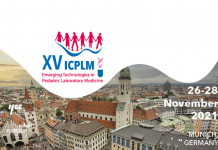Featuring research from 20 global oncology investigators, the presentations will focus on the application of ddPCR to detect cancer biomarkers in liquid biopsies and monitor patient response to treatment.
“As a practicing thoracic oncologist, I’ve seen DNA biomarkers emerge as some of our most powerful tools for predicting benefit from targeted therapies,” said Geoffrey Oxnard, MD, Assistant Professor of Medicine at the Dana-Farber Cancer Institute and Harvard Medical School.
Many cancer researchers have turned to cfDNA in blood, urine, and other body fluids as noninvasive biomarkers to understand how genetic changes — mutations, rearrangements, and copy number variations — influence cancer development and its evolution.
Early Prostate Cancer Biomarkers Discovered
Conventional approaches for prostate cancer detection are invasive and often lack specificity. Instead of relying on tumor samples, Tulane University researchers investigated the potential of monitoring cfDNA from urine. Using ddPCR, the team screened urine samples of prostate cancer patients for single nucleotide polymorphisms (SNPs) they had established as being associated with prostate cancer. The group identified two SNPs with the potential of being developed as a noninvasive diagnostic assay for early detection of prostate cancer.
ddPCR Allows Detection of Single Cancer DNA Molecules
One of the difficulties in detecting DNA-based cancer biomarkers is their low abundance compared to DNA from healthy cells. A Stanford University research team has developed a ddPCR assay that is capable of detecting and quantifying cancer mutations in samples with low mutation abundance such as archival tissue DNA and circulating tumor DNA. This assay can detect nearly any cancer mutation down to single DNA molecule resolution, including known actionable mutations in oncogenes such as BRAF and KRAS.
cfDNA Shown To Be a Valuable Pharmacodynamic Biomarker of KRAS-Mutant Lung Cancer
Phase 1 clinical trials have historically focused on toxicity studies but are increasingly collecting information on pharmacodynamics (PD), the dose-dependent effect a drug has on the body. A team of Dana-Farber Cancer Institute (DFCI) researchers, including Dr. Oxnard and colleagues from the Belfer Center for Applied Cancer Science, have shown proof of principle in early phase clinical trials that plasma cfDNA, as measured by ddPCR, is a valuable PD biomarker in KRAS-mutant non-small-cell lung cancer in early phase clinical trials.
ddPCR Validates Copy Number Variations in Hereditary Prostate Cancer
Prostate cancer is the second leading cause of death in American men — more than 27,000 men will die of the disease in the U.S. this year, according to the National Cancer Institute. A family history of prostate cancer is a prominent risk factor, but identifying an individual’s genetic susceptibility to prostate cancer has been challenging due to genetic heterogeneity. Louisiana State University Health Sciences Center New Orleans researchers will present findings that show how using ddPCR for absolute quantification of copy number variations in germ line DNA may help facilitate screening in hereditary prostate cancer families.
“Ideally, in the long term, our findings will play a significant role in the diagnosis of prostate cancer in the world of precision medicine,” said Diptasri Mandal, PhD, Professor of Genetics at LSU Health Sciences Center New Orleans.
Bio-Rad To Host Exhibitor Spotlight Presentation: “Moving Toward Clinically Actionable Liquid Biopsies with Digital PCR”
Filip Janku, MD, PhD, from the University of Texas MD Anderson Cancer Center, will discuss liquid biopsy applications in patients with advanced cancers. These applications include detection of targets for cancer therapy, prognostic evaluation, therapeutic monitoring, and real-time monitoring of clonal evolution. David Polsky, MD, PhD, from the Ronald O. Perelman Department of Dermatology at NYU Langone Medical Center, will present a recent study that compares the clinical sensitivity of BRAF and NRAS mutant detection in cfDNA with the current standard blood biomarker for monitoring disease in patients with metastatic melanoma.
For more information about ddPCR, please visit http://www.bio-rad.com/A
The QX200 Droplet Digital PCR System and Automated Droplet Generator are for research use only and are not intended for use in diagnostic procedures.
Source: Eurekalert











